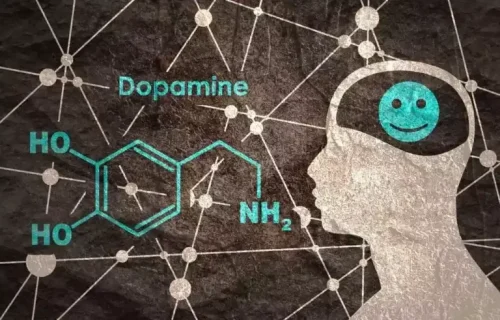PTSD and Alcoholism: How Does Alcohol Affect Post-Traumatic Stress Disorder?

A combination of therapy, counseling, and medication can be effective in helping individuals manage these co-occurring disorders and improve their overall well-being. It occurs when the brain’s normal response to stress becomes impaired after a traumatic event. The symptoms of PTSD can vary from person to person, but common triggers include reminders of the traumatic event, such as loud noises, certain smells, or specific locations. People with PTSD may experience intense fear, anger, or sadness when exposed to these triggers.
- This may include family members, friends, support groups, and mental health professionals.
- This session discusses the benefits of focusing on positive thoughts, reframing negative ones, and supporting a hopeful outlook, which can help members stay motivated in their recovery journey.
- Members brainstorm coping mechanisms like exercise, journaling, and talking to a friend, helping them build a toolkit of positive strategies to maintain sobriety.
- Antisocial personality disorder and SUD were the most common co-occurring disorders.
- By integrating holistic treatment methods, therapy and support systems, and the development of resilience and coping skills, individuals can find healing and embark on the path to recovery.
Participants and Procedure
Our compassionate team specializes in treating co-occurring disorders through personalized, evidence-based care. We provide integrated treatment programs that address both trauma and addiction, helping our clients build the skills and resilience needed for lasting recovery. Over time, this combination of effects adds another heavy layer of stress on the body and alcoholic rage syndrome mind, making it harder to process trauma, maintain emotional balance, and manage daily life. Instead of finding relief, people often end up trapped in a cycle of worsening mental health, increased drinking, and deepening PTSD symptoms.
Borderline Personality Disorder Medication: A Guide to the Most Effective…
- For veterans, accessing VA resources and support can be particularly beneficial in managing both PTSD and alcohol use disorder.
- Thus, alcohol use appears to serve to not only down-regulate trauma-related emotional distress, but also negative emotions more broadly among individuals with PTSD.
- Each week, members share someone or something they’re grateful for, which can shift focus away from stress and reinforce optimism in recovery.
- By reducing or eliminating alcohol from the equation, individuals can fully engage in therapy and make lasting progress in their recovery.
According to research, the rates of alcohol use disorder (AUD) among individuals with PTSD can be as high as 60%. As alcohol leaves the system, anxiety and mood disturbances often return stronger than before. Alcohol can also impair judgment, making it more likely for individuals to engage in risky behaviors or find themselves in dangerous situations. Alcohol depresses the central nervous system, leading to slowed reactions, impaired judgment, and lowered inhibitions.
PTSD And Alcoholism

Recovering from the co-occurrence of PTSD and alcoholism is a journey that requires patience, perseverance, and professional guidance. With a holistic approach, therapy and support systems, and the development of resilience and coping skills, individuals can find hope, healing, and long-lasting recovery. Trauma-informed care is an approach that recognizes the impact of trauma on an individual’s life and ensures that treatment providers are sensitive to their experiences.
For this reason, it is important to evaluate both risk for exposure as well as risk for a disorder among those exposed. By integrating treatment approaches that address both PTSD and alcoholism, individuals can work towards healing and recovery from both disorders simultaneously. This comprehensive approach enhances the chances of long-term success and helps individuals regain control over their lives. Alcoholism, also known as Alcohol Use Disorder (AUD), is a chronic condition characterized by a problematic pattern of alcohol consumption.
People Diagnosed With PTSD Have Higher Rates of Alcohol Abuse.
These 50 activities build practical skills and encourage self-discovery, resilience, and meaningful connection with others. Through structured, thoughtful activities, members gain the confidence and tools needed to overcome challenges and celebrate victories, creating a foundation for a fulfilling life in recovery. Yoga and movement therapy can reduce stress and improve physical and mental health. Members practice basic yoga poses and stretches to help connect mind and body, fostering relaxation and enhancing mood.
How Alcohol Addiction Is Like an Abusive Relationship
- Humor can lift spirits and reduce stress, making it a valuable tool in recovery.
- One prominent theory explaining this connection is the self-medication hypothesis.
- Each activity, from practicing mindfulness to setting personal goals, offers unique ways to support lasting change and emotional resilience in a group setting.
- Taken together, the papers included in this virtual issue on AUD and PTSD raise important issues regarding best practices for the assessment and treatment of comorbid AUD/PTSD, and highlight areas in need of additional research.
- It can have detrimental effects on an individual’s health, relationships, work, and personal life.
Some studies Drug rehabilitation highlight the impairment caused by alcohol consumption on processing emotional faces. One such study involved a sample of 85 social drinkers who were described as being low or high trait anger based on their responses to the anger expression index of the State-Trait Anger Expression Inventory-2 (STAXI-2) (Eastwood et al., 2020). They first consumed alcohol and were asked to recognize the emotions of different faces on a computer task. Specifically, they exhibited a reduced capacity to detect sadness and fear and a reduced tendency towards seeing happiness.
- Supermarkets offer a variety of choices, and platforms like The Wise Bartender provide a wide selection.
- These symptoms can persist for months or even years after the traumatic event, significantly impacting a person’s daily life.
- The individual may rely on alcohol to alleviate their PTSD symptoms, but this dependence can lead to increased distress and exacerbation of both conditions.
- Breaking this cycle requires a comprehensive treatment approach that addresses the underlying issues and provides effective coping strategies.
- Studies estimate that about 30-60% of individuals with PTSD also struggle with substance abuse.

These maladaptive responses to positive emotional experiences may derive from the heightened physiological arousal elicited by positive emotions (Litz et al., 2000). Indeed, physiological arousal is characteristic of many PTSD symptoms (e.g., intrusions; American Psychiatric Association, 2013), and, as such, may result in emotional distress through stimulus generalization (Roemer et al., 2001). In this respect, heightened levels of physiological arousal, regardless of source (e.g., negative or positive emotions), may be experienced as aversive among individuals with PTSD. An alternative explanation is that individuals with PTSD experience competing negative cognitions in the context of positive emotions (Frewen et al., 2012b; Frewen et al., 2012c). For instance, trauma-exposed individuals may not believe that they deserve to experience positive emotions or interpret positive emotions as a weakness (Lawrence & Lee, 2014). Negative affect interference may drive aversive reactions to positive emotions over time.
What Are the Legal Consequences of Alcohol Abuse?

Most people with PTSD have an urge to avoid any memories or flashbacks of the trauma. In other words, you may begin using alcohol as a way to cope with PTSD symptoms, but it becomes a dangerous learned behavior. Between 60–80 percent of Vietnam veterans report alcohol issues when seeking treatment for PTSD. Binge drinking is particularly prevalent among veterans with PTSD as compared to other groups. MentalHealth.com is a health technology company guiding people towards self-understanding and connection. The platform provides reliable resources, accessible services, and nurturing communities.



No Comments